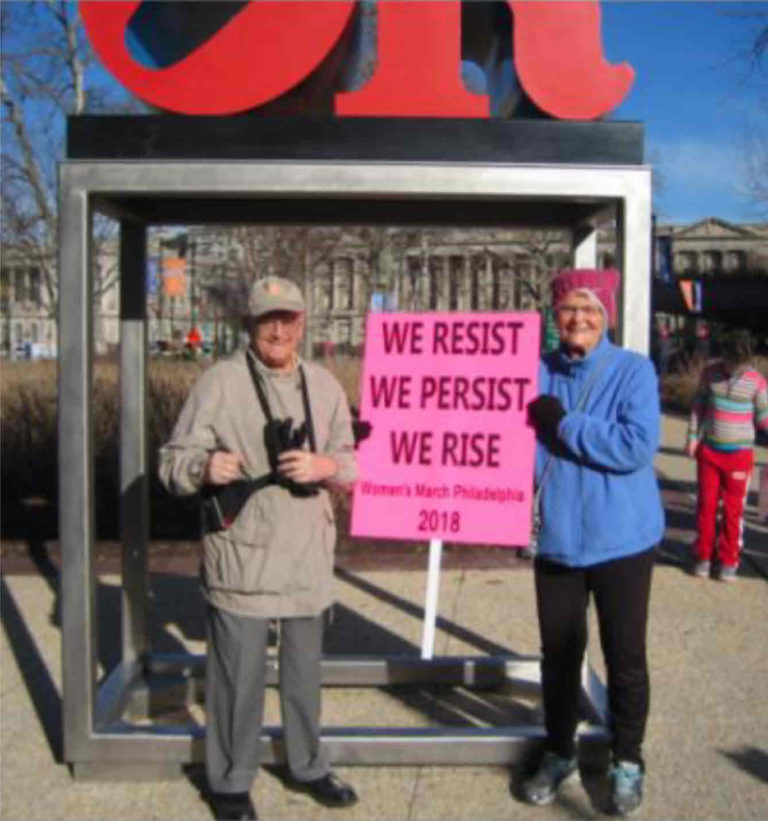I’m not an activist. The last time I joined a protest march was 1977, when Philadelphia General Hospital was closing. But for reasons both personal and political, I took part in the Women’s March on January 20.
It was a sunny though windy day. The 8:53 train was already packed arriving at Woodcrest, and seats were hard to come by. A young woman got up to offer me hers. When I declined (being an accomplished, proud straphanger from New York City), she took me by the arm and walked me to a seat at the end of the car. I sat down and asked the lady next to me, “Do I really look that frail?” “No,” she said, “you just look like an 88-year-old man.” Oh yeah? I thought, where did you get that? But then, one year wasn’t worth arguing about.
From the end stop at 16th and Locust we walked to Logan Circle, wondering where we would be stopped and searched for forbidden items. (We’d read that security measures would be in place.) But we weren’t stopped or searched.
The only visible police presence at that time was a helicopter circling at a discreet altitude. It was only when the march began that I saw police at ground level, leaning against the barricades along the side of the Parkway; they didn’t seem to expect trouble, and there wasn’t any. One officer in particular caught my eye, because he was wearing a thickly padded shirt with the words Counter-Terrorism Unit on the back. He may have wondered why he was there.
We strolled leisurely to Eakins Oval, listening to spirited conversation all around us, much laughter, and occasional anti-Trump chanting. There were posters galore, the best of which cannot be shown in The Chronicle because of their imaginative text and equally imaginative graphics.
Pussy hats were in evidence everywhere. Their range of color and knit pattern took me by surprise because I’d only seen plain pink ones last year. Of even greater interest to me was the presence of so many men. Constituting about five percent of the total of 50,000 (by my estimate, making about 2,500), a number were wheeling or carrying children—who also wore pussy hats. The Inquirer’s lengthy report on the march (q.v.) made no mention of the men, so I wrote to the editor, but my letter was not published.
Total strangers took pictures of Maggie and me, though I don’t know what it was about us that interested them. Finally, Natalie Pompilio from A.P. interviewed us, later reporting:
Retirees Herb and Maggie Heineman, ages 87 and 81 respectively, took careful steps as they inched closer to the stage set up in front of the Philadelphia Museum of Art. Herb Heineman, a naturalized citizen from Germany who now lives in Lumberton, New Jersey, cut off a reporter [Pompilio] who asked if he saw any comparisons between Donald Trump in the U.S. in 2018 and Germany from early in the 20th century.
“Don’t even finish it,” he said, shaking his head. “This [I’m sure I said That] is not the kind of country I want to live in.”
At the end of the interview we were a long walk from the nearest Porta Potty, so we didn’t stay for the speeches.
